
10 Ways Social Media Is Transforming Businesses
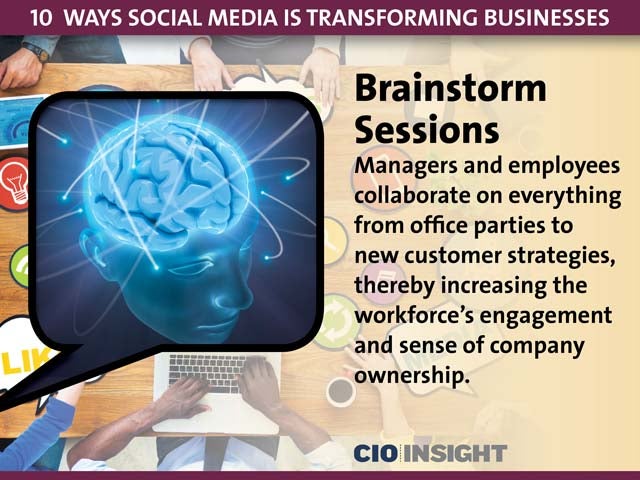 Brainstorm Sessions
Brainstorm Sessions
Managers and employees collaborate on everything from office parties to new customer strategies, thereby increasing the workforce’s engagement and sense of company ownership.
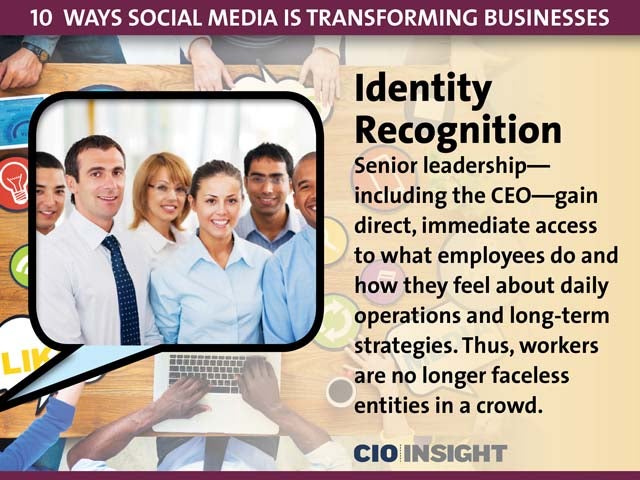 Identity Recognition
Identity Recognition
Senior leadership—including the CEO—gain direct, immediate access to what employees do and how they feel about daily operations and long-term strategies. Thus, workers are no longer faceless entities in a crowd.
 Flat Organization Society
Flat Organization Society
Rigid, hierarchy-rooted procedures and policies are dismantled, as the flat, socially adept organization encourages employees to lead.
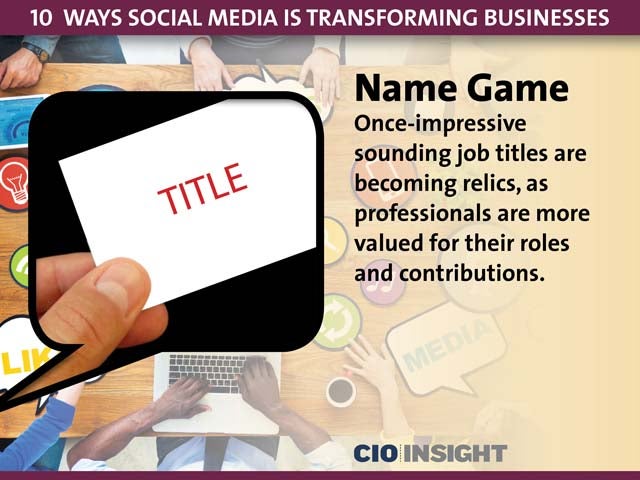 Name Game
Name Game
Once-impressive sounding job titles are becoming relics, as professionals are more valued for their roles and contributions.
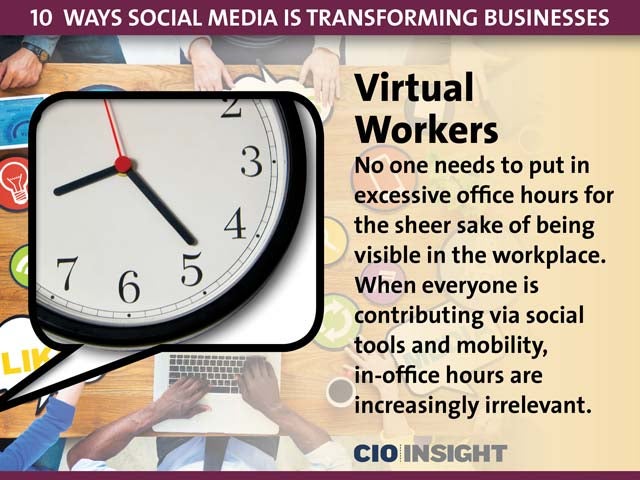 Virtual Workers
Virtual Workers
No one needs to put in excessive office hours for the sheer sake of being visible in the workplace. When everyone is contributing via social tools and mobility, in-office hours are increasingly irrelevant.
 It’s Business—and Personal
It’s Business—and Personal
The lines are continuously blurring between one’s private and professional life. You’ll find users’ business-related social media posts alongside their family and pet pictures.
 Driver’s Seat
Driver’s Seat
Job candidates have increased leverage, due to their greater savvy about a potential employer. They’re also more knowledgeable about what they can ask for in terms of a salary and other perks.
 Moving Target
Moving Target
Professionals no longer aspire to be the company employee. Instead, many join the “nano corps” of fluid groups that get a big project done at one organization and then move on to another challenge.
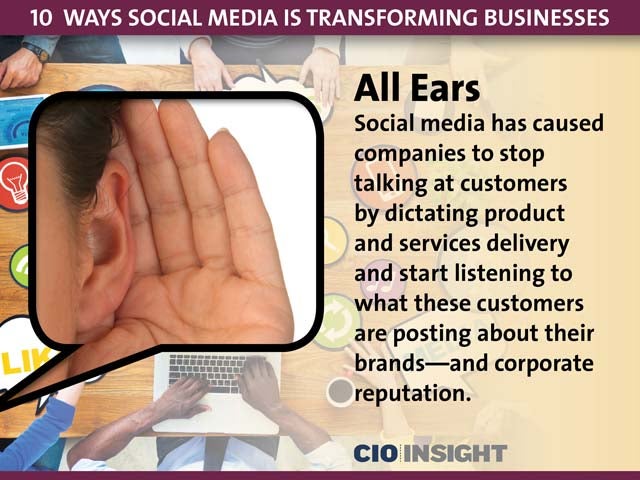 All Ears
All Ears
Social media has caused companies to stop talking at customers by dictating product and services delivery and start listening to what these customers are posting about their brands—and corporate reputation.
 Plot Line
Plot Line
With increased investment in content, companies now seek “the great story” to tell to consumers/target audiences, who are on social media looking to be inspired.